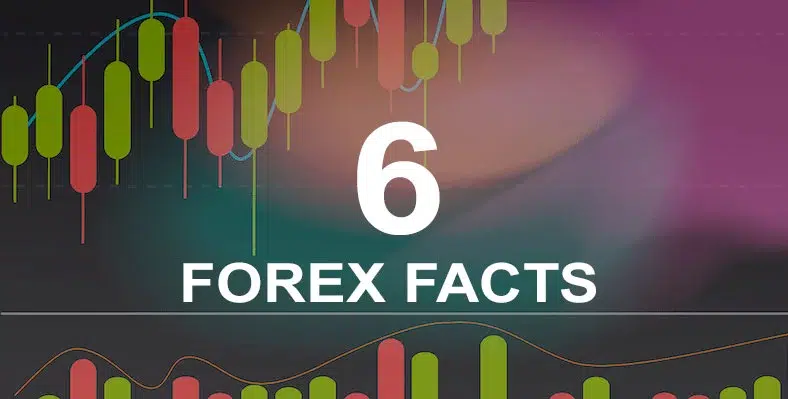Forex, or foreign exchange or currency trading, is the decentralized global market where all the world’s currencies trade. The forex market is the largest financial market in the world, with an estimated daily trading volume of over $6 trillion. Forex trading involves buying and selling currency pairs to profit from exchange rate fluctuations. Factors affecting forex prices include economic data releases, political events, central bank announcements, and market sentiment. Forex trading is a highly speculative and risky activity and requires a solid understanding of market dynamics and risk management strategies.
Top Forex Facts You Need to Know
Here are some top forex facts that you need to know:
The forex market is open 24 hours a day, five days a week. This means trading can happen around the clock, from Sunday evening to Friday afternoon.
The most commonly traded currency pairs in the forex market are the US dollar (USD), the euro (EUR), the Japanese yen (JPY), the British pound (GBP), the Swiss franc (CHF), the Australian dollar (AUD), the Canadian dollar (CAD), and the New Zealand dollar (NZD).
Forex trading is highly leveraged, meaning traders can control a large amount of money with a relatively small deposit. This can magnify profits, but it can also lead to significant losses.
The forex market is decentralized, which means that there is no central exchange where all trades are processed. Instead, forex trading takes place electronically over-the-counter (OTC).
Forex trading is heavily influenced by economic and political events. For example, the release of economic data, such as gross domestic product (GDP) or employment reports, can cause significant movements in currency prices.
Forex trading requires a solid understanding of fundamental and technical analysis. Fundamental analysis involves examining economic, financial. And other qualitative and quantitative factors that can affect currency prices. While technical analysis involves using charts and other technical indicators to identify trading opportunities.
The forex market is highly liquid, which means that traders can enter and exit trades quickly and easily and at a low cost. This makes it a popular market for day traders and scalpers.
Forex brokers
Forex brokers charge fees in the form of spreads, which is the difference between the bid and ask price of a currency pair. This spread represents the broker’s profit and can vary depending on market conditions and the broker’s business model.
Forex trading carries a high degree of risk and is not suitable for everyone. Traders should have a solid understanding of the market and risk management strategies before engaging in forex trading.
The Impact of Forex Facts on the Global Economy
The forex market plays a significant role in the global economy, as it is where currencies are bought and sold, and exchange rates are determined. Here are some ways in which forex facts can impact the global economy:
Trade:
The forex market is essential for international trade as it enables countries to exchange their currencies and facilitate international transactions. Changes in exchange rates can affect the cost of imports and exports. Which can have a significant impact on a country’s economy.
Investment:
The forex market provides an opportunity for investors to diversify their portfolios by investing in different currencies. Currency fluctuations can affect the value of investments and impact the overall performance of an investment portfolio.
Monetary policy:
Central banks use forex markets to implement monetary policies and manage exchange rates. For example, a central bank may intervene in the forex market by buying or selling currencies to influence exchange rates and support their economic goals.
Capital flows:
Forex markets can influence the flow of capital between countries. Changes in exchange rates can encourage or discourage investment in a particular country, which can affect economic growth and stability.
Inflation:
Currency fluctuations can impact inflation rates in a country. A weaker currency can lead to higher inflation as the cost of imports increases, while a stronger currency can lead to lower inflation as the cost of imports decreases.
Overall, the forex market plays a critical role in the global economy, and changes in exchange rates and currency prices can have far-reaching consequences for businesses, investors, and governments around the world.

